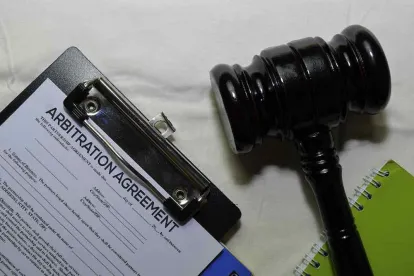As we previously reported, the U.S. Supreme Court was poised to resolve a circuit court split in Robyn Morgan v. Sundance, Inc. (No. 21-328), regarding whether a party must prove that it was prejudiced when arguing that the other party waived its right to arbitration by failing to compel arbitration at the outset of litigation.
In an opinion authored by Justice Elena Kagan, the Supreme Court unanimously concluded that a showing of prejudice is not required to support an arbitration waiver argument. In doing so, the decision overturned 50 years of precedent by nine different circuit courts of appeals that had previously held that prejudice to the other party was a necessary element of the arbitration waiver analysis.
The case was originally brought in 2018 by Robyn Morgan against Sundance, a fast-food franchise owner-operator, in the U.S. District Court for the Southern District of Iowa. Morgan alleged that Sundance failed to pay her and other similarly-situated employees for overtime in violation of the Fair Labor Standards Act. Eight months after the lawsuit was filed, Sundance filed a motion to compel Morgan to arbitrate her claims.
The district court denied the motion, concluding that Sundance had waived its contractual right to arbitration by virtue of its active participation in the litigation for eight months,. The district court found that Sundance substantially had invoked the “litigation machinery” and, therefore, waived its arbitration rights by waiting eight months to assert its right to arbitrate the dispute. Sundance appealed.
In March 2021, the U.S. Court of Appeals for the Eighth Circuit reversed the district court’s ruling. In its decision, the Eighth Circuit concluded that the district court erred in determining that Sundance waived its right to arbitrate because Sundance’s conduct, even if inconsistent with its contractual right to arbitration, did not prejudice Morgan in any meaningful way.
The Eighth Circuit’s reversal was consistent with eight other federal circuit courts of appeals that had imposed a prejudice requirement for the waiver of arbitration rights—the First, Second, Third, Fourth, Fifth, Sixth, Ninth, and Eleventh Circuits. Only the Seventh and D.C. Circuits had held that prejudice was not relevant to the waiver inquiry. The U.S. Supreme Court granted certiorari to resolve this circuit split.
In its decision, the U.S. Supreme Court first pointed out that, outside of the arbitration context, a federal court’s waiver analysis does not generally focus on prejudice but instead focuses on the actions of the person or entity that holds the contractual right alleged to have been waived. Having laid that foundation, the Supreme Court went on to opine that the Federal Arbitration Act (“FAA”) does not authorize federal courts to create an “arbitration-specific procedural rule” that is not generally applicable to other contractual rights. The Court held that “the FAA’s ‘policy favoring arbitration’ does not authorize federal courts to invent special, arbitration-preferring procedural rules.” Rather, the policy favoring arbitration is “merely an acknowledgment of the FAA’s commitment . . . to place such agreements upon the same footing as other contracts” and “not about fostering arbitration.” As a result, the Supreme Court rejected the prejudice requirement and held that a federal court “cannot condition a waiver of the right to arbitrate on a showing of prejudice.”
The Court vacated the judgment of the Eighth Circuit and remanded the matter to the Eighth Circuit. But importantly, because the Eighth Circuit’s judgment had focused only on the waiver and prejudice issue, the Supreme Court went out of its way to leave open the question of whether waiver was even the correct focus or whether, instead, the fact pattern should be analyzed using other principles like forfeiture, estoppel, laches, and/or procedural estoppel. Unlike waiver, these principles typically require a prejudice showing (a.k.a., “detrimental reliance”). Because the Supreme Court expressly left this question open, there may yet be more chapters to be written in this story.
Nonetheless, the Supreme Court’s decision has significant implications for employers that have mandatory arbitration arrangements with their employees. In short, employers that intend to invoke a contractual arbitration requirement should promptly file a motion to compel arbitration at the outset of litigation or risk waiving their right to arbitrate.





 />i
/>i
